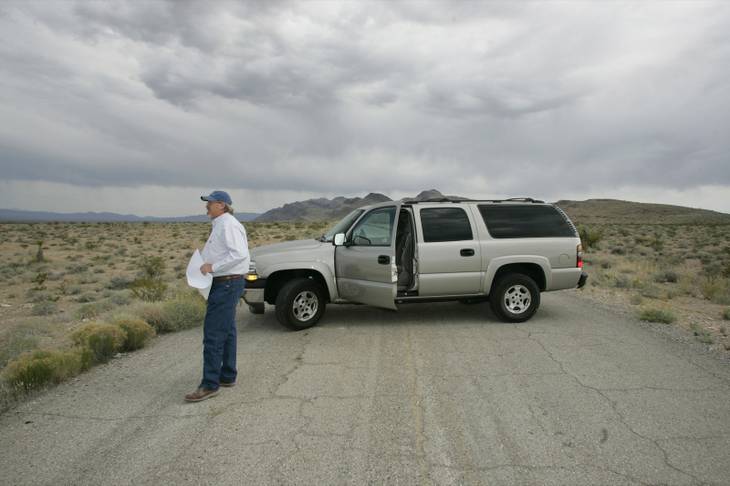Attorneys for Nevada lobbyist and attorney Harvey Whittemore have offered their most detailed denial to date of claims that Whittemore stole millions of dollars from his business partners.
The allegations were leveled in a Jan. 27 lawsuit in Clark County District Court, a state court, filed by attorneys for Northern California businessmen Thomas Seeno and his brother Albert Seeno Jr., who had invested in Whittemore’s businesses, including the stalled Coyote Springs housing development north of Las Vegas.
Attorneys for Whittemore filed their own lawsuit against the Seenos in federal court on Feb. 1, claiming Whittemore had been victimized by a scheme in which he was defrauded by the two brothers.
Whittemore also claimed he had been subjected to death threats and an extortion plot carried out by Albert Seeno Jr. and his son Albert Seeno III.
With two lawsuits active, attorneys for the Seenos on Feb. 10 asked the federal court to dismiss that suit or at least put it on hold while the state case is litigated.
In a response Friday, attorneys for Whittemore offered detailed denials to the Seenos’ state court claims.
While the Seenos’ lawsuit claims Whittemore has "admitted and confessed" to depleting Wingfield Nevada Group Holding Co. LLC of its assets in part to "further his standing in the political community of Nevada," Whittemore’s filing on Friday said there had been no such confession.
Wingfield was the Seeno/Whittemore joint venture company.
"At the direction of the Seenos, and under threat of death and/or bodily injury, I prepared two agendas as talking points for meeting with the Seenos," Whittemore wrote in an affidavit, adding Seeno Jr. had told him to use precise phrases and specific language in the agendas.
"While some of the phrases or terms in the agendas may incorrectly be read as embarrassing or admissions of mismanagement, that was never my intent. Nowhere did I admit to committing any crime or fraud,'' Whittemore wrote in his affidavit.
His attorneys, in their filing, said Whittemore’s federal lawsuit against the Seenos should continue because they were confident the Seenos’ state lawsuit would soon be stayed, or put on hold, so the parties could arbitrate their disputes.
That’s because the Wingfield operating agreement requires the parties to arbitrate their disputes before suing, Whittemore’s filing said.
"What the Seenos don’t want anyone to see is that they were fully advised of all transactions, that all transactions were transparent and that the members of Wingfield held weekly meetings and that the Seenos signed off on every accounting measure," Whittemore’s filing said.
Also filed in court Friday were portions of a deposition transcript of a Wingfield executive loyal to Whittemore, Brad Mamer.
Mamer said in the deposition that he’d never witnessed Whittemore doing anything improper, but that he was concerned that one or more of the Seenos were involved in environmental violations and alleged "illegal construction activity" at Coyote Springs.
With no sewer lines installed at the development, portable restrooms at its golf course were supposed to be connected to sewage holding tanks that would periodically be pumped out, Mamer said in the deposition.
In order to cut costs, tanks at the course were removed and a septic system was installed, Mamer said.
"It was alarming to see the septic lines go in in what I believe are U.S. Army Corps of Engineers-designated waters of the United States," he said. "It would be a violation of our environmental permit."
A request for comment was placed with the Seenos’ Las Vegas attorney on this allegation.
The Whittemore filings on Friday didn’t address a separate criminal investigation under way over Whittemore’s political fundraising activities.
